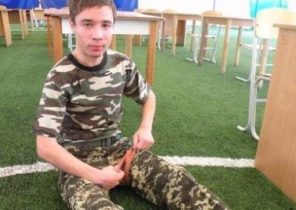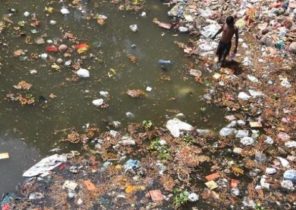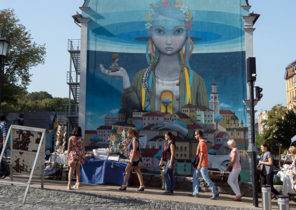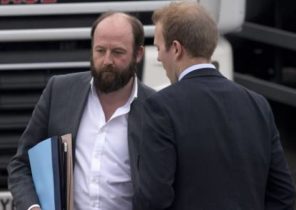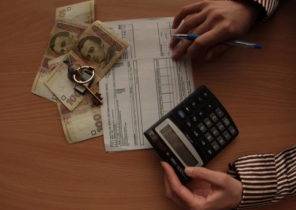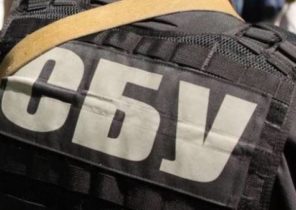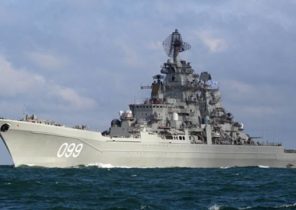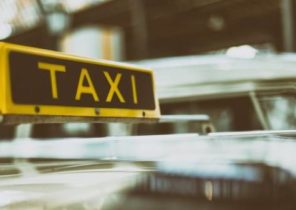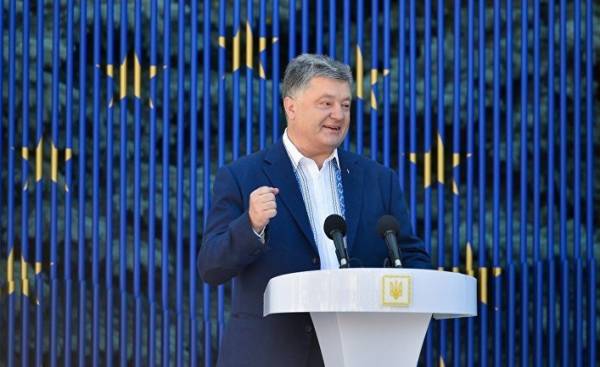
President Petro Poroshenko called it a final farewell of their country with the Russian Empire.
In fact, “Ukraine” means “borderland”. On Sunday, the country located between Russia and the rest of Europe, made the big move to the West.
“We need to give Ukrainians their history”, — said Poroshenko.
But what is the history of Ukraine? Whether Ukraine is an unnatural state education, and whether it is a simple extension of Russia, as suggested in the Moscow Kremlin? Or Ukraine — a natural part of Central Europe, as suggested by the current Ukrainian government? History gives to these questions are lengthy, full of conflicts and often contradicting themselves answers.
Petro Poroshenko has decided to celebrate the abolition of visas in the city of Uzhgorod. The ancient Austro-Hungarian University town, is situated at the border with Slovakia. But close to the border with Poland, Hungary and Romania. So, in other words, it is located in the border region, which is pretty typical.
The Ukrainian President, if you believe the reports, just in case prefer this memorable day break with Russia to quote two prominent Russian poets, Alexander Pushkin and Mikhail Lermontov, and not the Ukrainian national poet Taras Shevchenko. Although Shevchenko is one of the most important figures that contributed to the construction of the Ukrainian state, the father of Ukrainian literature of the mid-nineteenth century, when Russia brutally suppressed the Ukrainian language and culture.
So why did Pushkin and Lermontov? Because they also appeal directly to the hearts of Ukrainians. Because culture, history and life of Ukrainians and Russian are so close that the Russian culture is an important part of Ukrainian heritage.
These two countries have a long history together. In the Middle ages a powerful state called Kievan Rus. The centre was Kiev, the current capital of Ukraine. But while Russia gradually became more powerful Empire, whose capital was at first Moscow, then St. Petersburg, large parts of present-day Ukraine turned into a no man’s land, unless you were part of the Polish-Lithuanian Union.
The current Ukraine fell under Russian influence only in the XVII-XVIII centuries, when the Cossack Hetman Bohdan Khmelnytsky began a bloody — many would say “national” — the struggle with the Polish nobility.
The poles smartly changed the allies and eventually became too strong for Khmelnytskyi, so he turned to Russia, and Tsar Alexei, father of Peter the Great, received him with open arms.
In the XVIII century, Catherine the Great and her lover Grigory Potemkin conquered almost the whole of today’s Ukraine, and Poland itself subdued.
That’s when the descendants of Catherine born Ukrainian nationalism, which is not too different from Norwegian, appeared after the 400-year night of the Danish government.
History of the Cossacks and the Ukrainian language became the national markers in the struggle for the creation of Ukrainian identity. But when most of the European Nations after the First world war, found freedom, Ukraine tripped on stretching, procured others, and on their own. National freedom she got.
Only after the collapse of the Soviet Union in 1991 Ukraine became independent and the young state had to choose orientation. Russia or the West? The choice is not too different from what we had to do to Bogdan Khmelnitsky 360 years earlier.
Now everyone knows how the situation developed. Independence was given to Ukraine easy. In 2014, Pro-Russian President Viktor Yanukovych was relieved from his post because he preferred to sign a contract with Russia, not the EU, as promised earlier. Russia annexed the Crimea and supported the Pro-Russian rebels in Eastern Ukraine. For today’s Moscow leaders of Ukraine was a natural extension of Russia, control of Ukraine was crucial for Russia to continue to be a superpower.
Due to the role played by Russia, Ukrainians were United as they are unlikely to be able to unite themselves, in the decision to take a course on the EU, and for Russia to turn back.
For Ukraine in the EU door is now open. But the EU opened the door only slightly. And about any membership in the European Union think is not worth it. The history of the border region still in the making.
